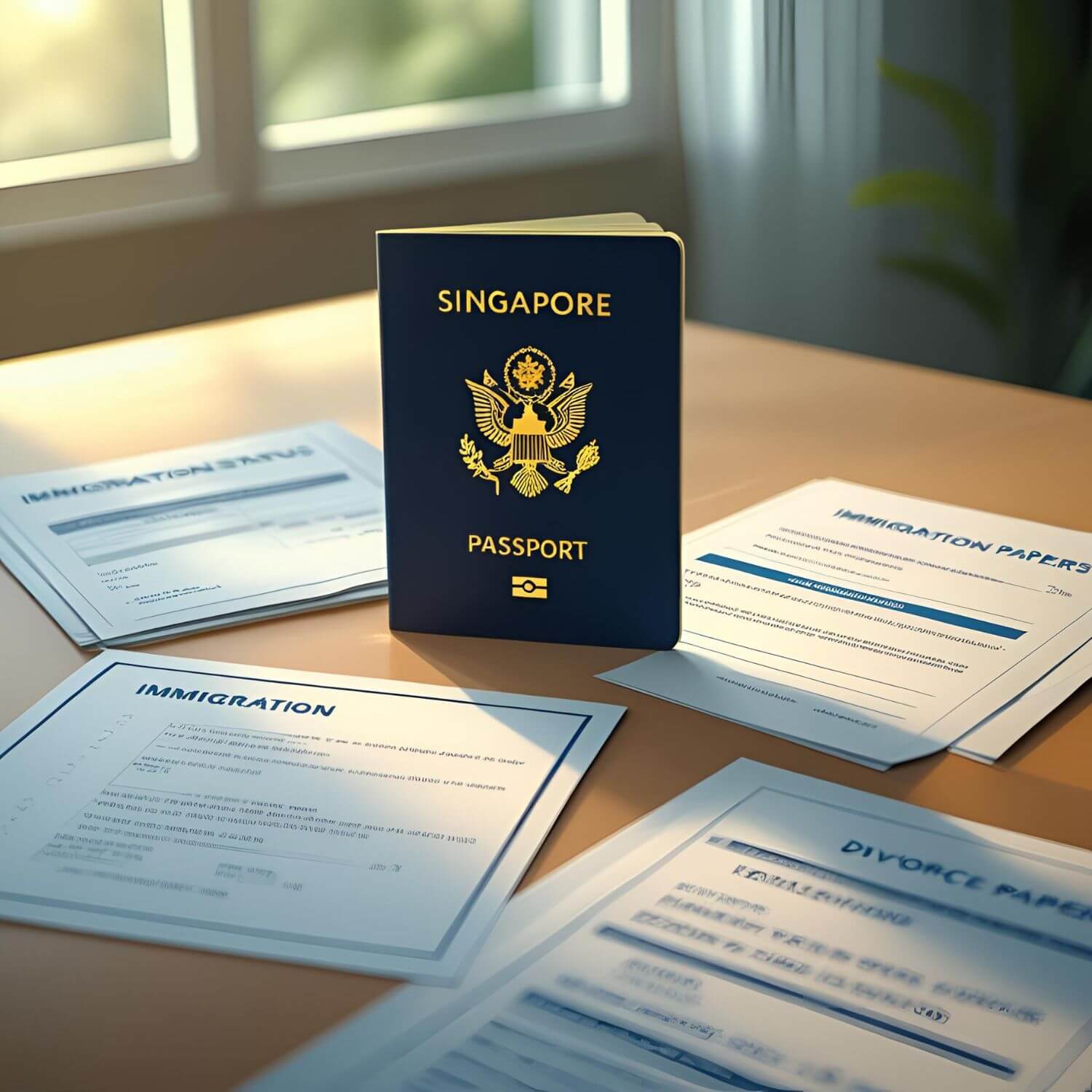At IRB Law, our expat divorce lawyers in Singapore are known for their dedication to achieving the best possible results for our clients, as well as for providing transparent and affordable fees. During this challenging period of your life, our expat divorce lawyers will stand by your side to help you navigate the divorce process smoothly and with confidence.
Recognized among Singapore’s Best Law Firms by The Straits Times, we will serve your best interests in both contested and uncontested expat divorce processes. Our expat divorce lawyers in Singapore advise on eligibility matters, file divorce papers, assist in resolving disputes with your spouse, and provide full assistance in ancillary matters.
Comprehensive Guidance on Expat Divorce in Singapore
Family Law for Expat Divorce in Singapore
The Singapore law allows divorce for couples married either in Singapore or abroad if they meet the eligibility criteria described below. The divorce process for expats follows the same path as outlined in the Women’s Charter, which governs all divorces in Singapore.
At the same time, expat divorce can be more nuanced due to the immigration status, presence of assets abroad, foreign orders, or potential child relocation, requiring a tailored legal strategy.
Eligibility Criteria for Expat Divorce
If a couple, where at least one spouse is an expat, seeks to file for divorce in Singapore, it must meet the following eligibility criteria:
At least one of the spouses needs to be a permanent resident in Singapore or must have lived in Singapore continuously for at least three years before filing.
The couple should be married for at least three years before filing, unless granted an exception, for example, due to the presence of exceptional hardship.
Grounds for International Divorce
In Singapore, the sole legal ground for expat divorce is an irretrievable breakdown of the marriage due to adultery, unreasonable or intolerable behaviour, desertion, or separation. From 1 July 2024, married couples can also file for divorce by mutual agreement if they agree that their marriage is beyond reconciliation.
End-to-End Legal Support Through the Expat Divorce Process
IRB Law’s expat divorce lawyers in Singapore offer comprehensive legal support at every stage of the divorce process, from filing divorce papers and mediation, to obtaining the Certificate of Final Judgement of Divorce.
Filing the divorce papers
Our lawyers will assist you in the emotionally challenging time of divorce by preparing the full package of documents you need to file to initiate the divorce process, including:
| Writ of Summons | Acknowledgement of Service to confirm receipt of divorce papers by the other spouse |
| Statement of Particulars | Memorandum of Service |
| Statement of Claim | Affidavit of Assets and Means (for contested divorce) |
| Proposed parenting plan if you have children | Spouses’ submissions to the court (for contested divorce) |
| Proposed property plan for HDB flat or other property |
Mediation
The Singapore family law and court practice discourage divorce litigation, which can be a long and costly process. Our family lawyers help divorcing spouses understand the differences in contested vs. uncontested divorce in Singapore and reach an agreement on divorce matters through professional mediation.
Interim Judgement
The court dissolves a marriage by granting an Interim Judgement if all the eligibility requirements, grounds for divorce, and document requirements are met and both spouses agree to divorce. Our expat lawyers will stand by your side at this critical stage to ensure that all legal requirements are fully met.
Ancillary Matters
Ancillary matters, such as child custody and maintenance, or division of assets in expat divorce cases in Singapore, can be among the greatest stumbling blocks for divorcing couples. Our lawyers assist spouses in negotiating on these important questions and prepare supporting documents for the court to proceed to the Final Judgment.
Сourt Trial in Contested Divorce
In case your spouse disagrees with the divorce or any of its terms, for example, spousal maintenance, property division, or child custody, the IRB Law’s expat divorce lawyers will provide a strong legal representation and advocate for your best interests in the courtroom.
Final Judgement
After the settlement of all ancillary matters, you must wait 3 months from the date of the Interim Judgment to apply for Final Judgement to finalise your divorce. The IRB Law legal team helps with filing the application for Final Judgement and can further assist with expat immigration matters following the divorce in Singapore.
Assistance with Ancillary Matters
Our expat divorce lawyers in Singapore can facilitate your reaching an agreement with your spouse on ancillary matters, including child custody and maintenance, division of matrimonial assets, spousal maintenance, as well as protect your interests in contested proceedings.

Child Custody
If you and your divorcing spouse have children, you will need to agree on child custody, care, and access rights or have the court decide on these matters. In many cases, the court awards joint custody to both parents, making decisions based on the child’s best interests.

Division of Assets
In the optimal scenario, it’s best when the spouses can agree on how to split their matrimonial property between themselves. If the court has to intervene, the judge will decide the matter during the hearing based on each spouse’s contribution to their marriage.

Spousal Maintenance
In Singapore, a husband is not entitled to maintenance unless he is disabled. On the other hand, the husband is obliged to maintain his wife during the marriage and after divorce based on the standard of living the couple had while married.

Child Maintenance
In case of divorce, the obligation to provide for child maintenance is shared by both spouses. The court determines the amount of child maintenance based on your and your ex-spouse’s incomes, the child’s living costs, previous standard of living, and other factors.

Immigration Status
The Dependent Pass for expatriates who are married to Singapore residents or citizens is usually cancelled after a divorce. The divorced expat spouse will need to change their status, for example, by applying for an Employment Pass or another eligible visa, to remain in Singapore.
Our Lawyers
Meet Some of Our Team
Mohamed Baiross
Mohamed Baiross is the managing partner of IRB Law and one of the nation's leading lawyers in multiple practice areas, including civil, corporate, and commercial law. With over three decades of experience as a business lawyer, Mohamed Baiross has built a renowned corporate law firm in Singapore, providing expert legal services to global corporations and local businesses.
Kulvinder Kaur
Kulvinder Kaur is a prominent commercial and corporate lawyer and an expert in litigation matters. Kaur is well-known in all courts of Singapore for strong legal representation in the most complex cases across multiple practice areas.
Insights
Featured Content
General Questions
Frequently Asked Questions
How long does it take to get an expat divorce in Singapore?
In practice, the uncontested expat divorce process in Singapore can take between 4 and 6 months or longer, or up to a year or longer for contested cases.





